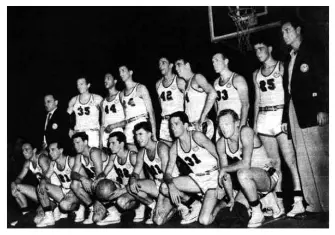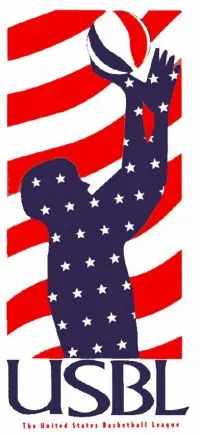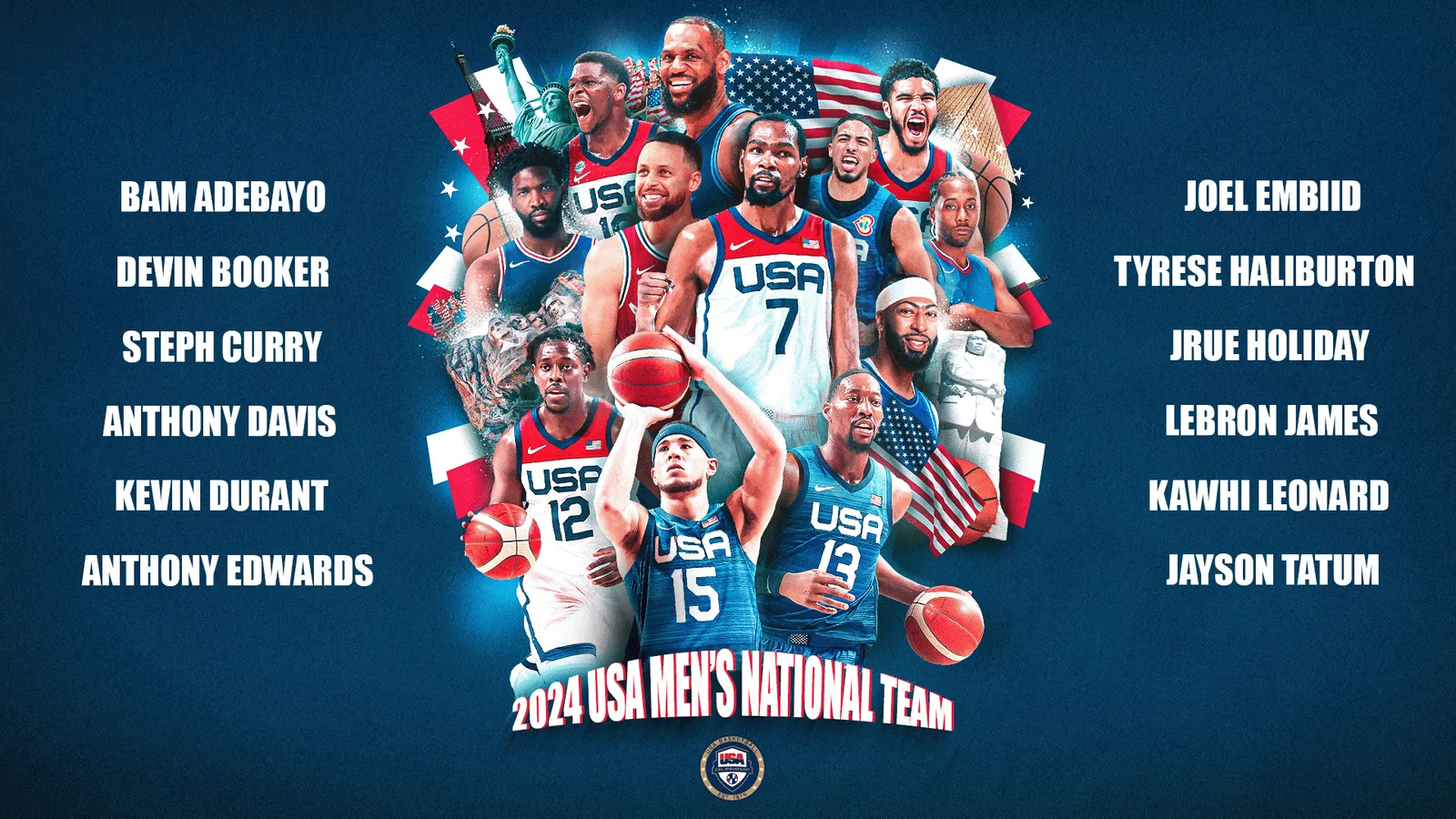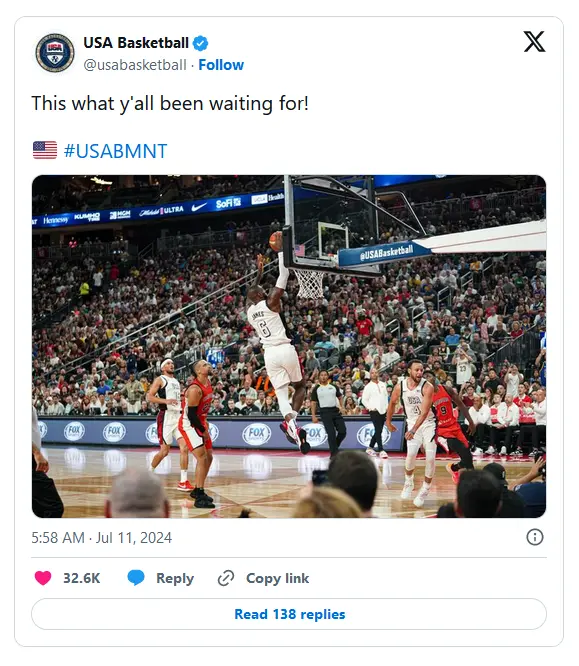Inside American Basketball
Historical Highlights and Future Prospects
History of American Basketball
 The history of American basketball dates back to the late 1890s, developed by James Naismith, who sought to create a game playable indoors during the harsh Massachusetts winters. The sport's origins can be traced to Springfield, Massachusetts, in a gymnasium where Naismith first implemented his idea. He found inspiration from ancient Mayan and Aztec cultures, which had similar games involving getting a rubber ball through a vertical ring. Initially, Naismith used peach baskets and a soccer ball, and the first game ended with a score of 1-0, a stark contrast to the high-scoring games seen today.
The history of American basketball dates back to the late 1890s, developed by James Naismith, who sought to create a game playable indoors during the harsh Massachusetts winters. The sport's origins can be traced to Springfield, Massachusetts, in a gymnasium where Naismith first implemented his idea. He found inspiration from ancient Mayan and Aztec cultures, which had similar games involving getting a rubber ball through a vertical ring. Initially, Naismith used peach baskets and a soccer ball, and the first game ended with a score of 1-0, a stark contrast to the high-scoring games seen today.
Basketball caught on quickly due to the efforts of YMCA graduates who traveled widely, spreading the game's rules. Naismith's game rapidly gained popularity, leading to the establishment of the first professional league in 1898, the National League, though it lasted only six years. Despite this early setback, college basketball began to flourish, particularly after Naismith brought the game to the University of Kansas. The National Collegiate Athletic Association (NCAA) was formed in 1908, organizing the first national championship in 1939, which has since grown into a major event with 64 teams competing.
The rise of professional basketball in America saw a significant milestone in 1949 with the formation of the National Basketball Association (NBA), which quickly became the dominant basketball league globally. The American Basketball Association (ABA) emerged in the 1970s, challenging the NBA until its eventual dissolution, with four teams, including the San Antonio Spurs and Indiana Pacers, joining the NBA. The NBA's popularity soared in the 1980s and 1990s, thanks to stars like Larry Bird, Magic Johnson, and Michael Jordan.
The influence of American basketball extends internationally, with many NBA teams featuring foreign players who compete for their home countries in the Olympics. The Dream Team, composed of top American basketball players, has represented the United States in recent Olympic Games. The 2004 Athens Olympics saw Argentina win the gold, highlighting basketball's global reach.
Basketball's journey from a simple indoor game to a worldwide phenomenon is a testament to its enduring appeal and the visionary efforts of James Naismith. From its early days in a small Springfield gymnasium to the high-flying displays of athleticism in the NBA Finals, American basketball has developed a rich history that spans over a century. Today, it is played by more than 250 million people worldwide, with countless others participating in informal pick-up games, solidifying its place as one of the most beloved sports globally.
United States Basketball League (USBL)

The USA Basketball League (USBL) was a professional men's spring basketball league. The league was formed in 1985 and ceased operations in 2008. The USBL started in 1985 as one of the first basketball leagues to play a late-spring to early-summer schedule. The league quickly became known as a development league for players, with many players moving up to the National Basketball Association (NBA) and many more playing in Europe after stints here.In 1996, the league made a stock offering, a rarity among sports leagues. However, in later years, the league declined as rival leagues appeared and USBL had a tougher time replacing teams that folded. In the last two seasons, the league was mainly a midwestern league, with teams mainly in Kansas, Nebraska, and Oklahoma. After speculation that the USBL might fold after the 2007 season, the league announced that it would sit out the 2008 season and consider its options for the future. In January 2010, the league expressed hopes to resume play in April 2010. However, no further news has surfaced from the league. The final champions are the Kansas Cagerz, who won the title game on July 1, 2007.
2024 USA Basketball Men’s National Team
USA Basketball has unveiled the 2024 American Basketball Men’s National Team, which will compete in the Olympic Games Paris 2024 from July 26 to August 11, 2024. The team, selected by USA Basketball Men’s National Team managing director Grant Hill and approved by the USA Basketball Board of Directors, features 12 athletes with extensive experience in American basketball. Highlighted by three-time Olympic champion Kevin Durant (Phoenix Suns) and the NBA’s all-time scoring leader LeBron James (Los Angeles Lakers), the team includes a roster filled with NBA All-Stars, MVPs, and champions.

Durant and James, along with players like Bam Adebayo (Miami Heat), Devin Booker (Phoenix Suns), Stephen Curry (Golden State Warriors), and Anthony Davis (Los Angeles Lakers), bring a wealth of experience and accolades to the team. Collectively, the squad boasts 11 Olympic appearances, 10 Olympic gold medals, and three FIBA World Cup titles. With a lineup of top-tier talent, the 2024 American Basketball Men’s National Team is poised to compete at the highest level and represent the United States on the global stage.
Meet the Players of the 2024 USA Basketball Men's National Team
The squad is bolstered by a combination of seasoned Olympians and rising stars, ensuring a dynamic and competitive presence at the Games. The complete roster includes:
|
|
|
|
|
|
|
|
|
|
 |
 |
 |
 |
Latest Update (7/11/2024) : USA Basketball Opens Showcase with 86-72 Win over Canada

An early double-digit deficit dissipated as the USA Basketball Men’s National Team defeated Canada 86-72 at the USA Basketball Showcase in T-Mobile Arena, Las Vegas. The USA’s star-studded squad, bound for the Olympic Games Paris 2024, played competitively for the first time, impressing a record-breaking American basketball crowd of 20,757.
This game marked the first of five exhibitions before the Games begin on July 26, with upcoming matches against Australia, Serbia, South Sudan, and Germany. Coach Steve Kerr highlighted the team's defensive intensity and work on the glass despite early offensive rust.
Stephen Curry sparked the offense after a slow start, while Anthony Edwards, Jayson Tatum, and Bam Adebayo led a successful second-quarter run. The USA held a significant rebounding advantage and shot over 50% from the field in the first half.
Curry continued his strong play in the third quarter, supported by contributions from Devin Booker and LeBron James. Canada's trio of RJ Barrett, Dillon Brooks, and Shai Gilgeous-Alexander provided resistance but couldn't close the gap.
Key performances from Curry, Jrue Holiday, Anthony Davis, and Edwards highlighted the depth of the American basketball roster. Holiday's defensive prowess and late-game scoring were instrumental in securing the win.
The event also celebrated USA Basketball's 50th Anniversary, with past Olympic legends honored on court. With their only pre-Olympics competition on home soil complete, the American basketball team heads to Abu Dhabi to face Australia next.
Conclusion
American basketball has evolved from its humble beginnings in a Springfield gymnasium into a globally recognized sport with deep cultural and economic significance. Pioneered by Dr. James Naismith in 1891, basketball's simple yet engaging nature allowed it to quickly gain popularity across schools, colleges, and professional leagues in the United States. This growth was marked by the establishment of major leagues such as the NBA, which has become a global powerhouse.
Throughout its history, American basketball has been shaped by iconic figures like Michael Jordan, LeBron James, and Bill Russell, who have not only excelled on the court but also influenced the sport's cultural and social dimensions. The NBA's economic impact is profound, contributing significantly to local economies through game attendance, merchandise sales, and media rights, while also expanding its international footprint.
Modern American basketball faces several challenges, including player health concerns, the need for greater diversity and inclusion, and maintaining ethical standards. However, advancements in technology are providing new ways to enhance player performance, coaching strategies, and fan engagement.
As the 2024 American Basketball Men’s National Team prepares for the Olympic Games in Paris, the sport continues to inspire and unite fans worldwide. The recent victory over Canada in the USA Basketball Showcase is a testament to the team's skill and dedication, promising an exciting journey ahead. With a rich history and a dynamic future, American basketball remains a beloved and influential part of the sporting world.
FAQs
Q.What are the origins of basketball and how did it become popular in the USA?
American basketball was invented by Dr. James Naismith in 1891 in Springfield, Massachusetts. Naismith created the game to provide an indoor activity during the harsh winters, using a soccer ball and peach baskets. The sport's simplicity and adaptability helped it quickly spread across the U.S., becoming a popular sport in schools and colleges. The establishment of professional leagues, such as the NBA in 1949, further cemented its popularity, making American basketball a beloved pastime.
Q.Who are considered the most influential figures in the history of American basketball?
Figures like Michael Jordan, LeBron James, and Bill Russell are considered transformative in American basketball. Michael Jordan's unparalleled skill and competitive spirit popularized the NBA globally in the 1990s. LeBron James has been influential both on and off the court, advocating for social issues and setting records. Bill Russell's impact includes his dominance in the 1950s and 1960s, leading the Boston Celtics to 11 NBA championships and becoming a pioneering African American coach.
Q.How does the NBA impact the American economy?
The NBA contributes significantly to the American economy through various channels. Game attendance generates substantial revenue for cities and local businesses, while merchandise sales boost the retail sector. Media rights deals bring in billions, benefiting broadcasters and advertisers. Additionally, the NBA's international business ventures expand its global market, creating jobs and fostering economic growth. The league also supports numerous charitable initiatives, positively impacting American basketball communities nationwide.
Q.What are the major challenges facing American basketball today?
Challenges include addressing health concerns, such as player injuries and long-term health effects of intense play. Enhancing diversity and inclusion remains a priority, ensuring equal opportunities across gender, race, and socioeconomic backgrounds. Managing legal and ethical issues, including doping, gambling, and player conduct, is crucial for maintaining the sport's integrity. The NBA and other organizations continuously work on strategies to tackle these challenges and promote a positive, inclusive environment in American basketball.
Q.How is technology changing the way American basketball is played and coached?
Technology is revolutionizing American basketball through advanced analytics, player tracking systems, and innovative training tools. Advanced analytics provide detailed insights into player performance and game strategies, aiding coaches in decision-making. Player tracking systems monitor movements and biometrics, helping optimize training and prevent injuries. Innovative tools like virtual reality (VR) offer immersive training experiences, enhancing skills and tactical understanding. These technological advancements not only improve performance but also enhance fan engagement through interactive experiences and real-time data access.
© 2025 fortunachiro.com, Inc. All rights reserved.







